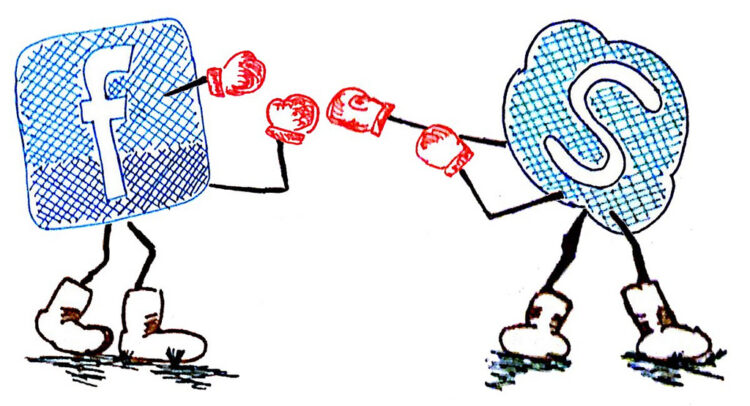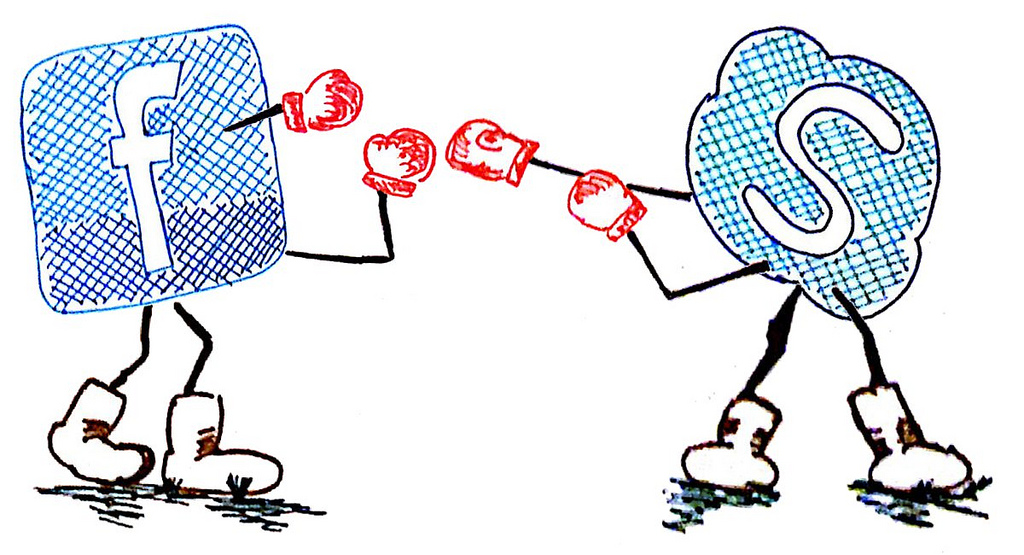Facebook made the largest purchase ever of a venture-capital-backed startup when it announced that it would be buying WhatsApp, a popular messaging service. The $19 billion purchase (yes, that’s billion with a ‘B’) dwarfs Facebook’s $3B offer to SnapChat, and has analysts all over the world wondering what exactly Facebook is planning.
And while we could speculate all day on an answer to that question, there are implications to this purchase that span far beyond Facebook itself and into the entire ecosystem of social media. This is big news for everyone–not just Facebook–and anyone in the social media world ought to be paying close attention to exactly how this situation unfolds over time.
Regardless of how much you care about Facebook as a platform, there are a few key takeaways from this gigantic purchase that I think anyone involved with social media should be aware of:
Social media continues to be incredibly dynamic.
Keeping track of social media can be exhausting (one minute it’s Twitter, the next it’s SnapChat, and then photos, then mobile, and so on and so forth), but it’s necessary if you want your strategy to continue to be effective. As I’ll elaborate on here in a moment, this purchase by Facebook represents a huge shift in strategy, and is also a huge reminder of just how dynamic social media is.
Crafting a good strategy means knowing exactly what the relevant trends are, and how they’ll affect your audience and your message, and this is no different. Now’s the time to think about mobile messaging and how you can use it to your advantage as a business. It’s also the time to think about photos, and videos, and answering questions for Google (among many other things), and while that may take a lot of work, again, it’s necessary to having a successful strategy. Social media’s dynamic nature is one of its biggest advantages, but it can also create problems for your business if you’re not careful.
Mobile is more than just a passing trend.
$19B for a mobile messaging app seems insane, right? Not when you consider the incredible amount of growth that mobile has seen in the last year. Just as Facebook acquired Instagram when photos were becoming a staple of social media (and really, daily life), so too is its purchase of WhatsApp yet another signal that mobile is more than a passing trend. Mobile is the place to invest in 2014, and all the big companies–from Google to Twitter to Telestra–are doing just that. If you haven’t already, now may be the time to start thinking about working mobile into your social media strategy.
Its form may be changing, but Facebook is here to stay.
Not too long ago, we were commenting on whether or not Facebook was actually dying as some analysts were suggesting (our answer was no, probably not, by the way). And today, with this new acquisition, Mark Zuckerberg is sending an impressive reminder to all of his doubters that he’s not content to rest on his laurels.
Where he’s so brilliant is in his recognition that Facebook has to change in order to stay relevant. As one reporter puts it, Zuckerberg realizes that “you need to disrupt yourself before your competitors do;” even though this purchase shows an enormous shift in strategy for Facebook, it also shows that yes, Facebook is going to continue to adapt to the culture that’s become its user base. The end lesson here? Facebook may be changing, but it’s not going anywhere any time soon.
This purchase is a gigantic bet for Facebook ($19B is, after all, almost 10% of Facebook’s entire market value), one that I hope pays off well for them. But as I just mentioned, regardless of what you think about Facebook, this purchase is a gigantic, flashing reminder that social media will continue to evolve and shapeshift to fit the needs of its users.
As we like to say here at SMC, social media hasn’t fundamentally changed the way we communicate–it’s just increased the scale. Social media is called social media because it reacts to the needs of its users, and the continuing shift towards mobile by users, and subsequently by social platforms, is a great indicator of that.
Is WhatsApp actually worth $19 billion? Hard to say. But at the end of the day, even though most of us (myself included) can’t even begin to imagine how much that $19B actually represents in real-world terms, keeping an eye on this deal is a great idea if for no other reason than the fact that it’s a great signpost for social media’s importance in the modern world.
Image credit: CC by Tsahi Levent-Levi




